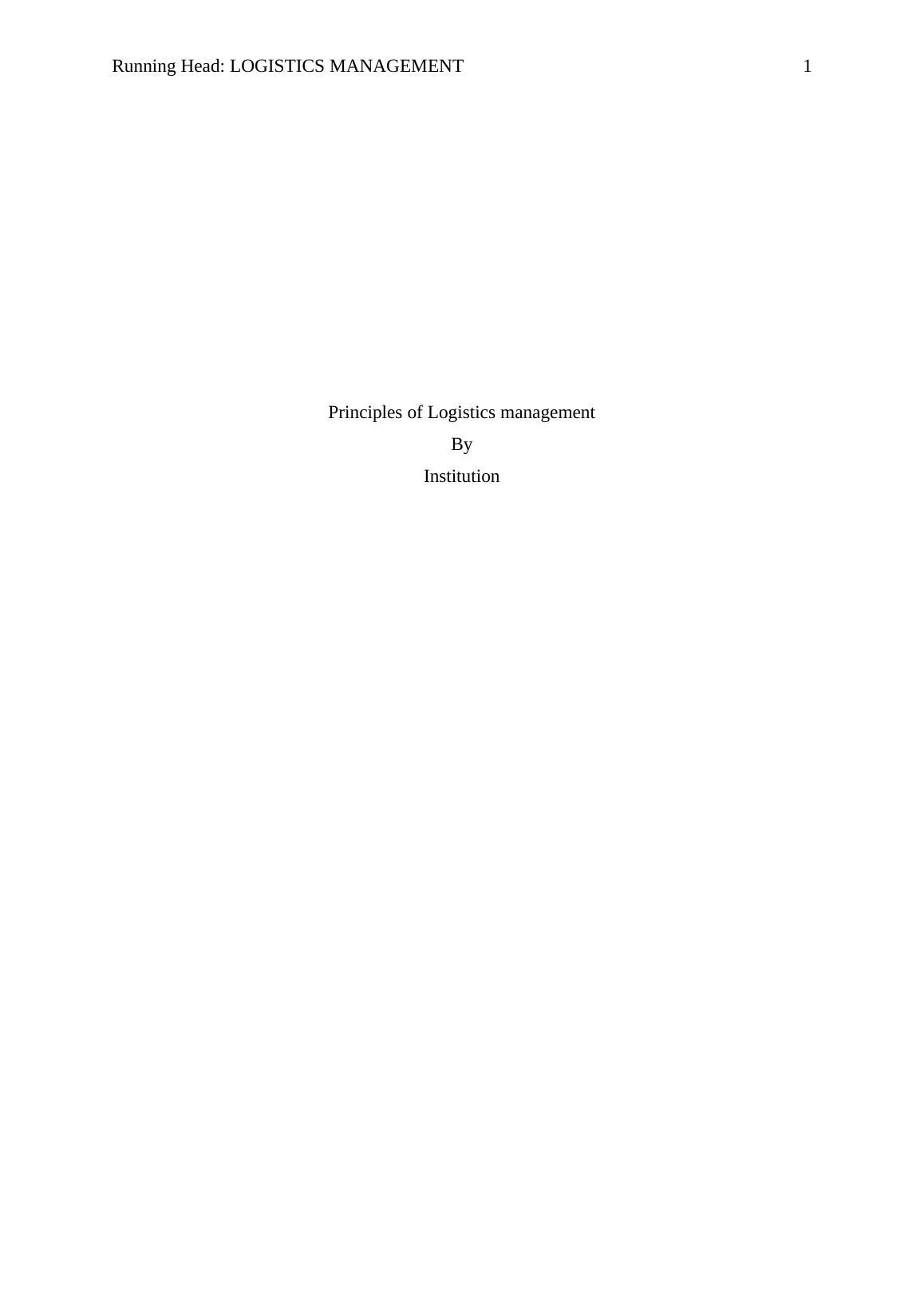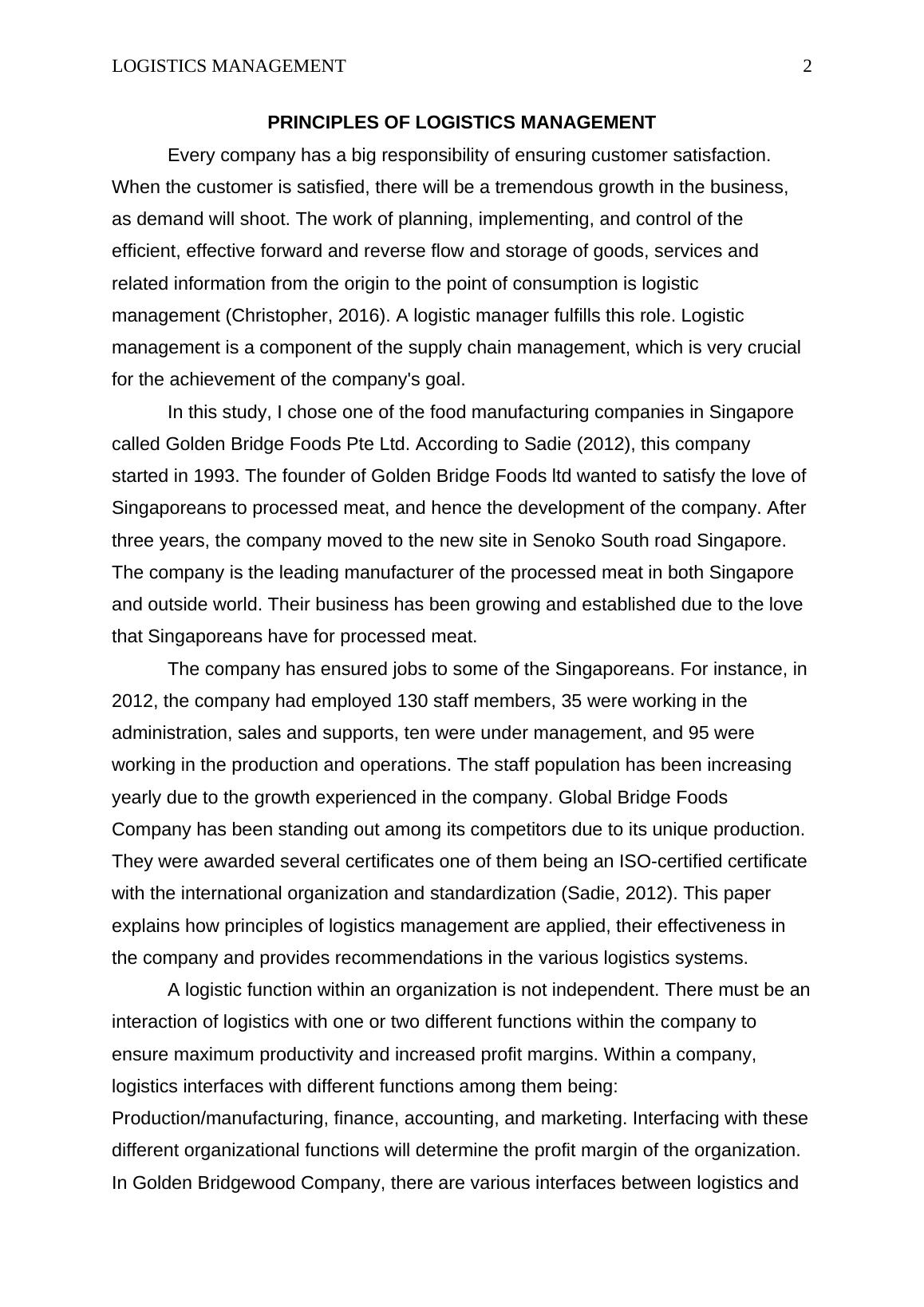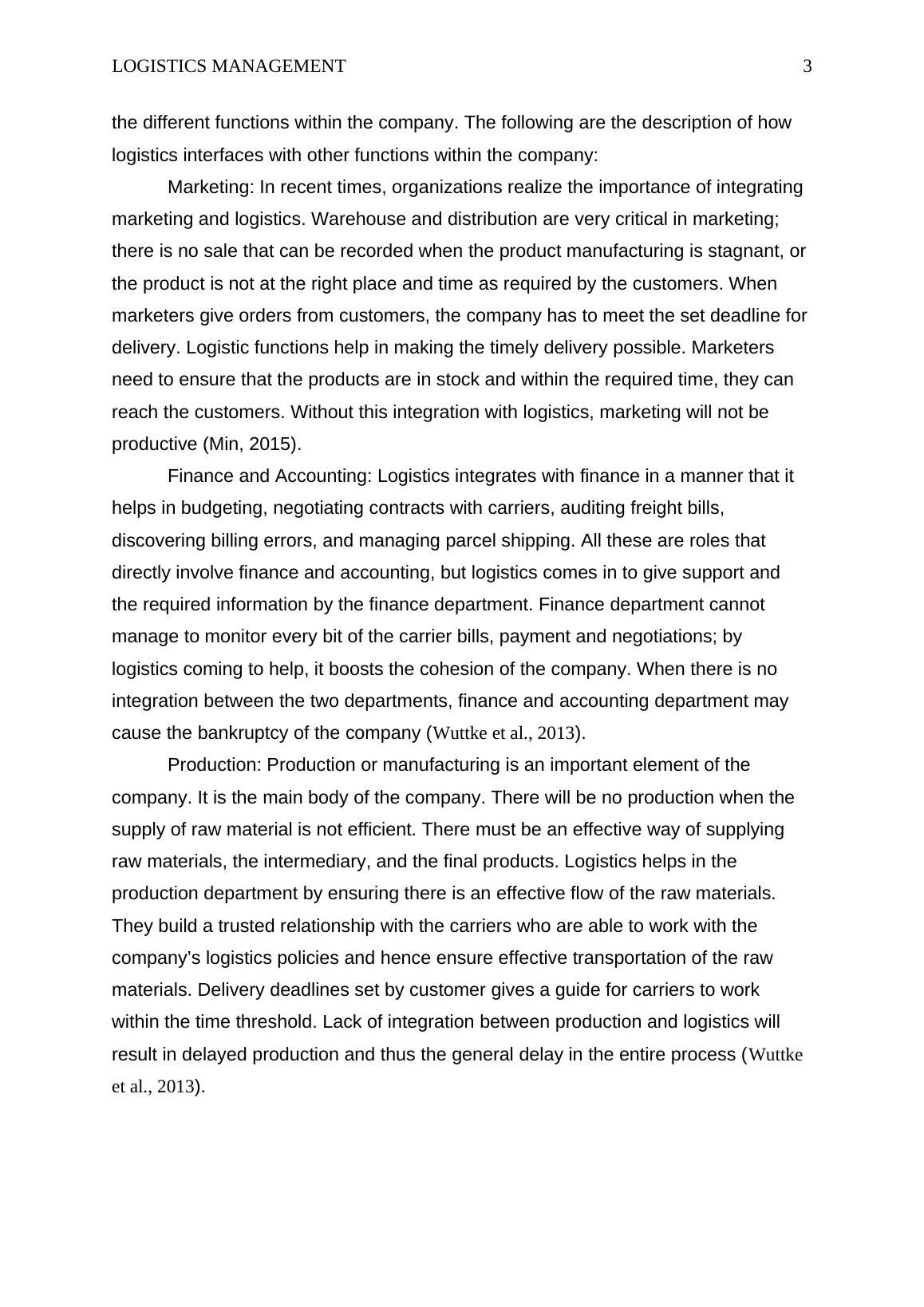Report on Principles of Logistics Management
Added on 2020-04-07
9 Pages2829 Words65 Views
Running Head: LOGISTICS MANAGEMENT1Principles of Logistics managementByInstitution

LOGISTICS MANAGEMENT2PRINCIPLES OF LOGISTICS MANAGEMENTEvery company has a big responsibility of ensuring customer satisfaction. When the customer is satisfied, there will be a tremendous growth in the business, as demand will shoot. The work of planning, implementing, and control of the efficient, effective forward and reverse flow and storage of goods, services and related information from the origin to the point of consumption is logistic management (Christopher, 2016). A logistic manager fulfills this role. Logistic management is a component of the supply chain management, which is very crucial for the achievement of the company's goal. In this study, I chose one of the food manufacturing companies in Singapore called Golden Bridge Foods Pte Ltd. According to Sadie (2012), this company started in 1993. The founder of Golden Bridge Foods ltd wanted to satisfy the love ofSingaporeans to processed meat, and hence the development of the company. Afterthree years, the company moved to the new site in Senoko South road Singapore. The company is the leading manufacturer of the processed meat in both Singapore and outside world. Their business has been growing and established due to the love that Singaporeans have for processed meat. The company has ensured jobs to some of the Singaporeans. For instance, in2012, the company had employed 130 staff members, 35 were working in the administration, sales and supports, ten were under management, and 95 were working in the production and operations. The staff population has been increasing yearly due to the growth experienced in the company. Global Bridge Foods Company has been standing out among its competitors due to its unique production. They were awarded several certificates one of them being an ISO-certified certificatewith the international organization and standardization (Sadie, 2012). This paper explains how principles of logistics management are applied, their effectiveness in the company and provides recommendations in the various logistics systems.A logistic function within an organization is not independent. There must be aninteraction of logistics with one or two different functions within the company to ensure maximum productivity and increased profit margins. Within a company, logistics interfaces with different functions among them being: Production/manufacturing, finance, accounting, and marketing. Interfacing with thesedifferent organizational functions will determine the profit margin of the organization. In Golden Bridgewood Company, there are various interfaces between logistics and

LOGISTICS MANAGEMENT3the different functions within the company. The following are the description of how logistics interfaces with other functions within the company:Marketing: In recent times, organizations realize the importance of integrating marketing and logistics. Warehouse and distribution are very critical in marketing; there is no sale that can be recorded when the product manufacturing is stagnant, orthe product is not at the right place and time as required by the customers. When marketers give orders from customers, the company has to meet the set deadline fordelivery. Logistic functions help in making the timely delivery possible. Marketers need to ensure that the products are in stock and within the required time, they can reach the customers. Without this integration with logistics, marketing will not be productive (Min, 2015). Finance and Accounting: Logistics integrates with finance in a manner that it helps in budgeting, negotiating contracts with carriers, auditing freight bills, discovering billing errors, and managing parcel shipping. All these are roles that directly involve finance and accounting, but logistics comes in to give support and the required information by the finance department. Finance department cannot manage to monitor every bit of the carrier bills, payment and negotiations; by logistics coming to help, it boosts the cohesion of the company. When there is no integration between the two departments, finance and accounting department may cause the bankruptcy of the company (Wuttke et al., 2013). Production: Production or manufacturing is an important element of the company. It is the main body of the company. There will be no production when the supply of raw material is not efficient. There must be an effective way of supplying raw materials, the intermediary, and the final products. Logistics helps in the production department by ensuring there is an effective flow of the raw materials. They build a trusted relationship with the carriers who are able to work with the company’s logistics policies and hence ensure effective transportation of the raw materials. Delivery deadlines set by customer gives a guide for carriers to work within the time threshold. Lack of integration between production and logistics will result in delayed production and thus the general delay in the entire process (Wuttke et al., 2013).

End of preview
Want to access all the pages? Upload your documents or become a member.
Related Documents
Principles of Logistic Management Doclg...
|11
|2762
|139
Principles of logistic management - Assignmentlg...
|12
|3207
|222
Introduction to Managementlg...
|15
|3156
|281
Principles Of Logistics Management | PDFlg...
|13
|2486
|229
Principles of Logistics Management Assignmentlg...
|11
|2447
|1007
Assignment Principles Logistics Managementlg...
|12
|2823
|347
